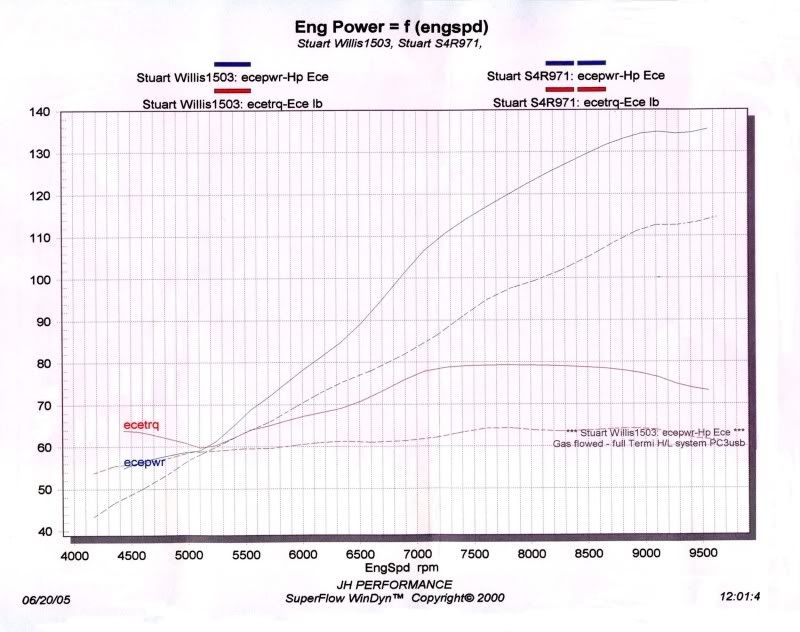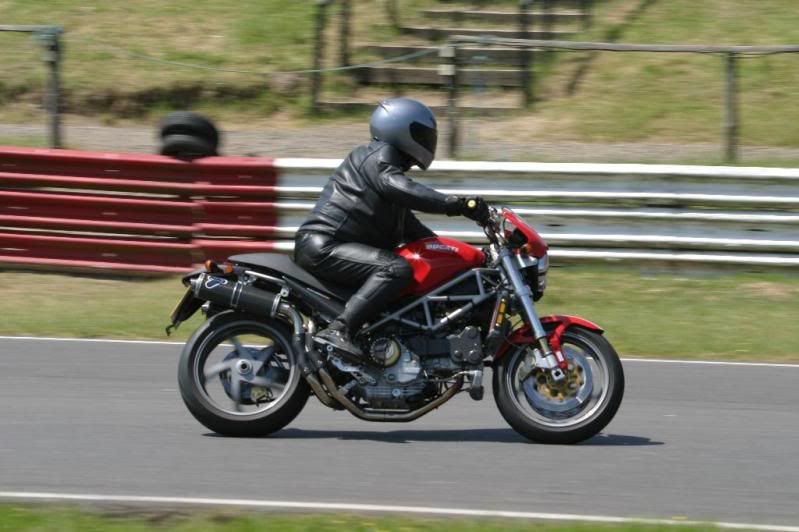The bike was purchased new in 2004 from JHP Ducati Coventry, the intended use was as a fast B road point to point ‘scratcher.
The first mod iteration was the installation of a spareshack ‘cat eliminator’ pipe and ‘cored silencers’ sounded great, leaked at every joint and didn’t seem to improve the power.
By this time I had grown accustomed to the machine and found it wanting in many ways.
This led to the first major upgrade and involved the fitting of the DP ‘Race’ kit consisting of a full 50mm exhaust system with carbon termis, SPS camshafts open top airbox and a DP ECU. While the heads were off, John Hackett ported them. A lightweight DP flywheel was also fitted
The engine produced 135hp at the rear wheel on the JHP dyno, with a wide flat torque curve.
Gearing was (and is) 15/44, a little higher than the ‘normal 14/42 but with the higher RPM afforded by the DP ECU, a good turn of speed is to be had with the engine able to pull to 10,000 in top.

This is the bike that stage

Next came better suspension brakes and lighter wheels.
The suspension was upgraded via the DP kit consisting of Ohlins R&T forks with 4 pad Brembo radial calipers, lightweight racing discs and a magnesium lower yoket, An Ohlins remote reservoir and hydraulic preload shock was fitted on the rear.
Wheel were replaced with Marchesini forged magnesium 10 spoke items shod with Pilot Powers. Cycle Cat rearsets were sourced and fitted.
This is the bike at that stage. Performance was vastly improved.

A little later came a JHP slipper clutch and a DP silicon hose kit. The slipper clutch is probably the best mod on the bike and significantly lowered my track day lap times.
The miserable summer of ’07 was in part responsible for the (I hope) final stage.
A good indicator of a motorcycles overall performance is its power to weight ratio, in standard form given the published weight and power figures, this equated to 0.58 (113/194).
Scope for improvement of this figure revolved mainly around weight reduction which would also benefit the handling. There was little scope for increased power although there were some gains to be had for an output of 140..
Given the published weight of 194kg, some quick calculations suggested that a weight of 165kg and power of 140hp was feasible, this would yield a power to weight ratio of 0.85 (140/165) a significant improvement of the stock machine.
An actual dry weight (no fuel) of 174kg was at first disappointing given the attention (and cost) given to weight saving, after talking to John Hackett the published weight excludes all fluids and the battery and would be in excess of 204kgs. As a result the revised power to weight ratio is .8 still not too shabby.
Over 60% of the weight reduction is rotating resulting in a reduction in overall flywheel affect and more importantly a significant reduction in gyroscopic effect that would improve the ‘flickability’ of the bike.








 Linear Mode
Linear Mode

